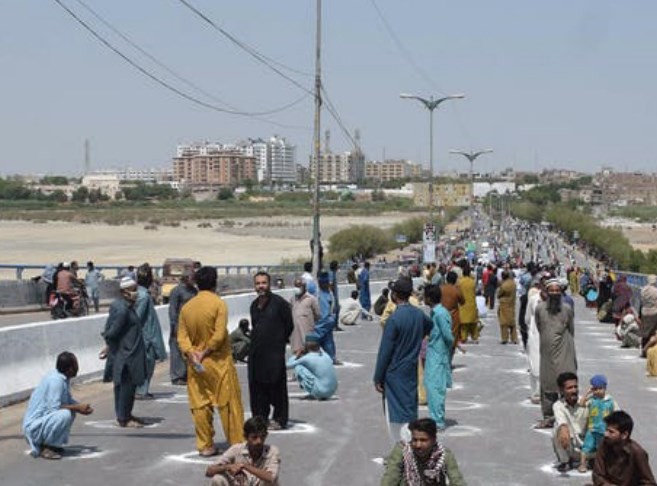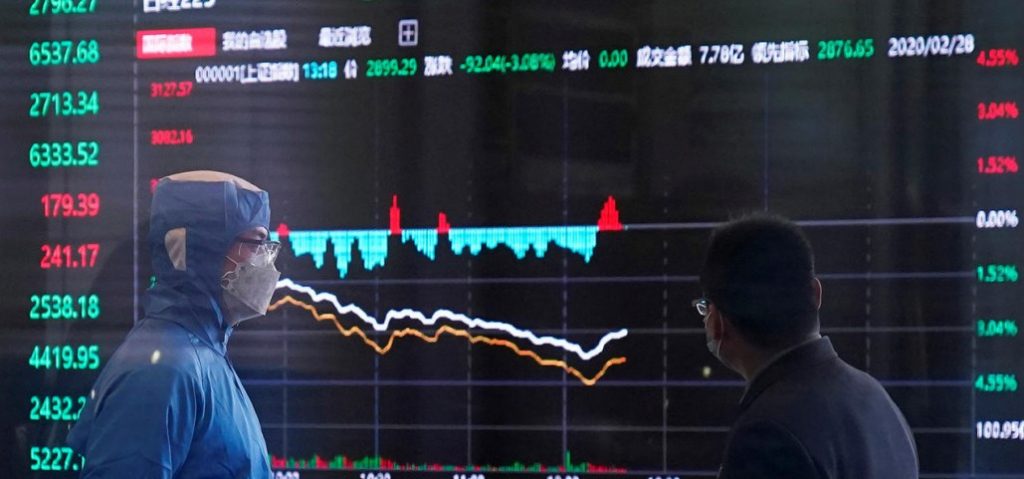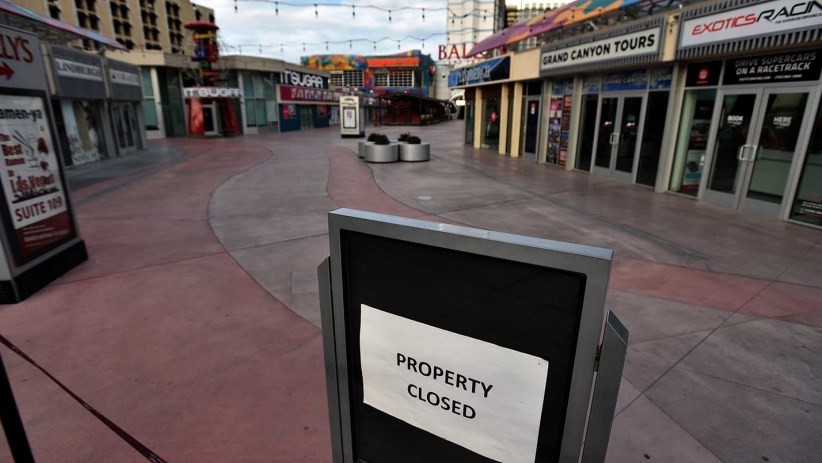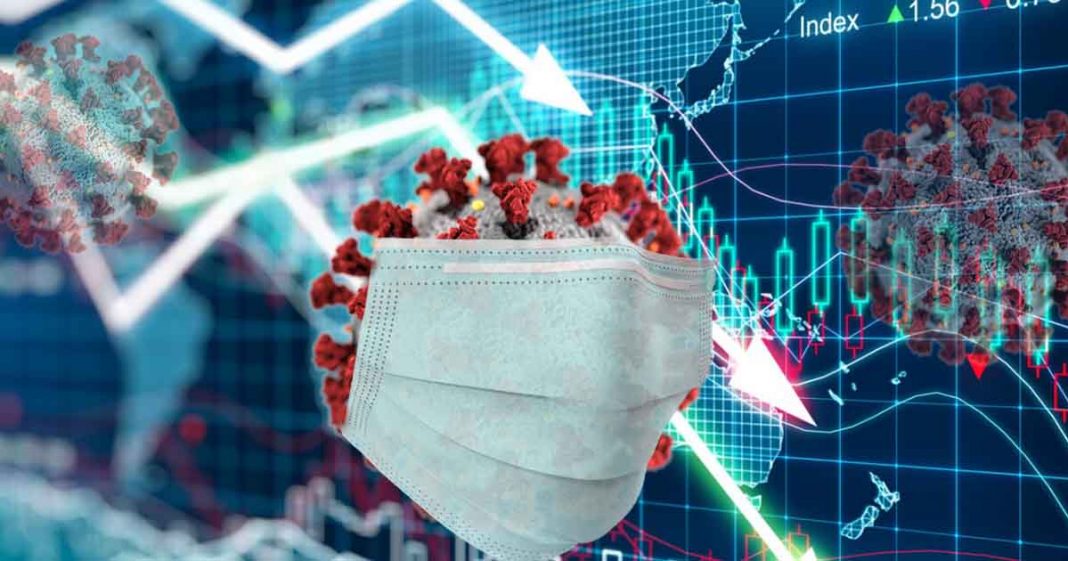‘The pandemic is about as close to an asteroid hitting the earth as you can imagine in terms of a common threat. However, not only has there been no meaningful cooperation, it has become just another vector for competition.’ – Richard Fontaine, Chief Executive Officer, Center for a New American Security, Washington.
‘The global economy will be shaped in the years ahead by three trends. The relationship between markets and the state will be rebalanced in favour of the latter. This will be accompanied by a rebalancing between hyper-globalization and national autonomy, also in favour of the latter. Moreover, our ambitions for economic growth will need to be scaled down. Developing countries will now have to rely on new growth models. The pandemic may be the wake-up call needed to re-calibrate growth prospects and stimulate the broader rethink needed. Insofar as the world economy was already on a fragile, unsustainable path, COVID-19 clarifies the challenges we face and the decisions we must make. In each of these areas, policymakers have choices. Better and worse outcomes are possible. The fate of the world economy hinges not on what the virus does, but on how we choose to respond.’ – Dani Rodrik, Professor of International Political Economy, John F. Kennedy School of Government, Harvard University.
Neoliberalism and the coming of the crisis
Coronaviruses are not a new phenomenon. Till 2002 they were considered ‘minor pathogens’ according to a research article published in February 2020. This changed with the advent of SARS-CoV around 2002; it appears in increased intensity in several epidemics since then, including MERS.
The article ‘Coronavirus: a paradigm of new emerging zoonotic diseases’ states that, “Until 2002, CoVs [coronaviruses] were considered minor pathogens for humans, generally associated to the common cold or mild respiratory infections in immunocompetent people, with rare exceptions represented by severe infections in infants, young children and elder people” (Channappanavar and Perlman 2017).
This concept completely changed with the emergence of a highly pathogenic zoonotic disease [that is transmitted from animals to humans], the Severe Acute Respiratory Syndrome (SARS) caused by the SARS-CoV.
A total of 10 years after the onset of the SARS outbreak, a new coronavirus jumped from animals to humans, causing the lethal Middle East Respiratory Syndrome (MERS) (WHO 2020b). Epidemiological studies have suggested that MERS occurred due to virus transmission through dromedary camels or camel products (Chan et al., .2015).
Read more: Unlocking the Economy – Keep Going
Renowned intellectual and political dissident, Noam Chomsky, indicated that while it was common knowledge for quite some time that a pandemic could happen, no significant preparations were made to avert the crisis or to prepare for it.
There was a lack of attention by pharmaceutical companies to work towards a vaccine to deal with the coronavirus epidemics. They remained inclined towards making profits from focusing on relatively a lot less critical products like body creams than to focus on matters of more substantial social importance.
At the same time, Chomsky pointed the influence of Neoliberalism, being at the forefront of controlling policy since the 1980s, has kept governments significantly away from regulating markets, and in doing so, minimized the role of governments in terms of focusing enough on matters of public interest.
He advocates that this needs to change, at least now since the Covid-19 pandemic should serve as a watershed in undoing the grip of Neoliberalism. He indicated this as ‘We should think about the emergence of this crisis: why is there a coronavirus crisis?
It is a colossal market failure, pointing to fundamentals problems in the socio-economic order, made much worse by the neoliberal plague, and it continues because of the collapse of kinds of institutional structures that could deal with it – if they were functioning.’

George Monbiot, acclaimed intellectual and a regular contributor to the Guardian, recently pointed out that the world missed an opportunity to fix the global economy by limiting the unnecessary and dangerous influence on policy by corporations (under Neoliberalism).
At the time of the Global Financial Crisis 2007/08, these corporations were dependent in a significant way on governments to bail them out; governments should not let go of this second opportunity to bring needed reforms since in the wake of the pandemic this ‘dependency factor’ of corporations is significant. Furthermore, he highlighted in an article, ‘Our politics is not designed to protect the public from COVID-19.
Politics can be best seen as public relations for particular interests. The interests come first; politics is how they are justified and promoted. Their purpose was to render governments less willing and able to respond to public health and environmental crises. While nobody has a commercial interest in the spread of coronavirus, the nature and tenor of the governments, these interests have built, impedes attempts to respond quickly and appropriately.’
Covid-19 shrinks global economic output
Pandemic hit the global economy not only very hard in terms of a collapse of both aggregates – demand and supply – under a global lockdown, which in its own right is quite unprecedented given mostly it is either one of the two and not both.
As it was a health crisis much fiscal space with individual governments – something which was more difficult for developing countries due to their already weak health care systems – had to be diverted for capacity building measures and for sustaining the lockdowns in the shape of more significant welfare needs in the shape of direct cash-handouts or ‘helicopter money.’

The first part above meant that global growth prospects for the current year in particular, and in most scenarios in the medium term – especially till the time a vaccine gets made and administered globally – remains in the negative territory this year.
The recovery in economic growth, initially seen with greater optimism in terms of dealing with the pandemic rather quickly, is now most likely to be a prolonged ‘U-shaped,’ with a long, lean period – the length of this lean period also depends on the occurrence of a second- or third wave of the pandemic – and gradual recovery.
According to the growth prospects released by IMF in its flagship publication World Economic Outlook (WEO), released in April 2020, global economic growth rate during the current year was expected to be at negative 3 percent; where, economic growth of advanced economies would likely shrink even deeply at negative 6.1 percent, and growth rate of emerging markets and developing economies (EMDE) was expected to be at negative 1 percent.
In the particular case of Pakistan, the IMF expects that economic growth in the current year will be at a negative 1.5 percent. At the same time, although quite unlikely given how the pandemic had continued to grow deeper since April 2020 (when the WEO was released), IMF projects that in a more optimistic scenario of lesser lockdowns and no second or third waves of Covid-19 happening, the global growth rate in 2021 may bounce back to the positive zone of economic growth; whereby it expects global economic growth rate for 2021 to be at 5.8 percent, in advanced economies at 4.5 percent, and in EMDE at 6.6 percent.
Read more: The world failed to prepare itself against zoonotic dieases despite warnings
Major economic challenges in the wake of Covid-19
The very shrinking of the global economy has left a sea of people unemployed almost everywhere. In Pakistan PIDE (Pakistan Institute of Development Economics) has recently projected that as a result of the pandemic, unemployment rate, which was at around 5 percent pre-pandemic, has already risen close to 30 percent.
In addition to providing cash handouts to unemployed, it is important, therefore, that the government provides cash-handouts to businesses in both the cottage industry and small and medium enterprises to support them in terms of not laying-off people.
An increase in unemployment will most likely add to poverty numbers. Already, while the World Bank expects around 40-60 million falling below extreme poverty – which World Bank defines as people’ living on less than $1.90 per person per day’ – UN has grimmer projections at up to 130 million falling below the poverty line as a consequence of the pandemic.
The poverty rate in Pakistan, which was already close to one-fourth of the population according to 2015 World Bank estimates (most recent available), at 24.3 percent, is likely to have increased significantly in the recent months due to the pandemic, and its consequences especially in terms of the estimated significant increase in the unemployment rate.
The global community has offered partial debt service suspensions to 76 low-income countries, and the IMF has offered debt service relief to 25 of the poorest countries
Hence, unlike the wave of austerity policies practised after the Global Financial Crisis 2007/08, the current collapse of the global economy, especially in terms of negative economic growth rates, and the fallout in terms of a significant increase in unemployment and poverty levels, means that a new era of expansionary monetary and fiscal policies needs to be practised, along with putting in place well functioning, and greatly broader welfare programs.
This would mean greater fiscal deficits, which would require prioritizing development spending and a more supportive central bank. It would also require greater global support. The current support in this regard falls quite short of needs sadly and should be jacked up significantly.
Such support from international creditors – financial institutions like IMF, World Bank, and Asian Development Bank, bilateral, and private creditors – would also mean leaning towards debt moratoriums/write-offs, especially because debtor countries which are mostly emerging and developing countries are hit hard by falling exports and remittances, and in the case of oil-exporting countries like Malaysia (among many others), drastic fall in oil revenues.
At the same time, to allow debtor countries to safeguard their credit ratings, for successfully meeting their future borrowing needs, debt relief will have to be balanced with greater (in terms of volume) and broader (in terms of countries covered) provision of SDRs (Special Drawing Rights) by IMF.
Read more: Pakistan’s economic policy for the 2020s
In this regard, David Lubin highlights in his article ‘IMF’s $1tn lending power is not all it is cracked up to be’ as follows ‘One way out of this might have been an emergency allocation of special drawing rights, a tool last used in 2009. This would credit member countries’ accounts with new, unconditional liquidity that could be exchanged for the five currencies that underpin the SDR: the dollar, the yen, the euro, sterling and the renminbi.
That will not be happening, though, since the US is firmly opposed, for reasons bad and good. So, in the end, the IMF and its shareholders face a huge problem. It either lends more money on easy terms without the “collateral” of conditionality (borrowing government tighten its belt and exercise restraint in public spending), at the expense of undermining its balance sheet; or it remains, in systemic terms, on the side-lines of this crisis.’
Also, unlike the temporary-natured ‘Baker Plan’ for the early 1980s global debt crisis that fell short of making any significant headway to properly support debtor countries, there is a need for a more long-term nature of debt relief provided, for instance by the G20 group of countries.
Moreover, there is a need for the US Federal Reserve to considerably expand its swap lines, which currently are extended to only four emerging economies – Mexico, Brazil, Singapore, and South Korea.

There is a looming debt crisis, which is more complicated than the early 1980s – for one, there are numerous private creditors now than at that time, and also because the debt situation of debtor countries, in general, had already been worsening since the Global Financial Crisis 2007/08 – and the world, therefore, need to respond in a significantly better manner than it is currently doing.
In this regard, UN DESA (United Nations Department of Economic and Social Affairs) recently highlighted:
‘The global community has offered partial debt service suspensions to 76 low-income countries, and the IMF has offered debt service relief to 25 of the poorest countries. These do not cover commercial and multilateral debt or middle-income countries, and will not suffice to avoid defaults. Debt distress will impede countries’ efforts to combat the coronavirus pandemic and derail progress towards the Sustainable Development Goals (SDGs)…
Despite near-zero global interest rates, borrowing costs for most developing countries have risen; credit spreads on emerging market sovereign bonds more than doubled from the beginning of the year to April, widening to more than 600bps… Median public debt in developing countries grew almost 15 percentage points of GDP from 2012 to 2019 (from 35 percent to 51 percent of GDP).’
Read more: How to run economy amid COVID-19?
The private creditors, which are numerous, could frustrate debtor countries in this time of pandemic – at the back of their short-sighted profit-mindedness – when the debtor countries have limited fiscal space to make repayments. One way to deal with this is highlighted by Berry Eichengreen in his recent article ‘Managing the coming global debt crisis’ as follows ‘This debt crisis is also a humanitarian crisis and a global public-policy crisis.
The appropriate entity to organize the response is, therefore, the International Monetary Fund, not the Institute of International Finance, the house organ of the creditors (as recommended by the G20). As a United Nations organization, the IMF could request that Chapter VII of the UN Charter be invoked to shield debtors from disruptive legal action by opportunistic investors. A crisis of this magnitude warrants no less.’
Wither internationalism?
Cracks were already deepening in terms of the influence of institutions like World Trade Organization (WTO), since it did not internalize its lack of performance is becoming a platform that provided a level-playing-field to all countries alike – favouring powerful countries in terms of allowances and incentives in the realm of trade, supply chains and labour markets, in an unequal way it treated less influential countries.
Hence, a biased and weak framework of WTO could not come to proper help of countries, in terms of trade-related issues, in the wake of the pandemic. This has served as a major blow to the otherwise useful concept of free trade and would require active policy correction by WTO if it wishes to reverse the winds of ultra-nationalism, xenophobia and protectionism.
It now forecasts a plunge of 12 percent between the last quarter of 2019 and the second quarter of 2020 in advanced economies and a fall of 5 percent in emerging and developing countries
Given the significant depth of the cracks in multilateralism already there before the pandemic hit and immense weaknesses in its system exposed by the crisis, it would be no less than walking on thin ice for not just the WTO, but other multilateral institutions like the IMF.
Similarly, the failures of OPEC+ group (composed of major oil-exporting countries) in properly managing oil supply, and in saving the oil market from a nose-dive in the price of oil, led to oil-exporting countries witnessing a major dent in their oil revenues.
At the same time, this group did not look much beyond making profits over the years and rather formulate policies that helped, for instance, oil-importing countries – whose lacking internal policies also badly exposed in this regard – like Pakistan, in developing adequate storage facilities in case there was a positive oil supply shock; which ultimately did happen in the wake of the pandemic.
Resultantly, in general Pakistan and many other oil-importing countries have still to take adequate advantage of the oil price collapse, even though it happened around two months ago, and where prices have remained historically depressed since then.
Read more: Can IMF please provide the debt relief any quicker?
Moreover, lack of interdisciplinary approach of mainstream economics and economic policy, with its widespread education and practice under the influence of Neoliberalism, by many-a-governments and multilateral institutions like International Monetary Fund meant that macroeconomics was just not equipped – where the underlying models remained oblivious to the happening of such a pandemic as a result of disconnect, while such a possibility of a pandemic happening was quite common knowledge in the public health sector – and therefore the models on which policy was based remained quite restrictive and kept the possibility of a pandemic happening as an ‘exogenous shock’.
This needs to change, especially if institutions like the IMF have to retain their effective relevance. Otherwise, as Martin Wolf who regularly contributes to Financial Times, highlights in his article ‘The world economy is now collapsing’ would mean a very weak IMF in better preparing the global economy deal with such crises in the future.
Already big question marks are being raised as to why the IMF did not revisit better its policies and took them away from the neoliberal influence when the same influence did not allow it to perform better in both avoiding the Global Financial Crisis 2007/08 and inadequately dealing with it.
This means economics going back to its original thought process as propagated by the father of modern economics, Adam Smith, in his book The theory of moral sentiments
To reveal further the issue at hand concerning IMF’s weak capacity and performance, in the same article Martin Wolf points out ‘In January, the IMF forecast smooth growth this year. It now forecasts a plunge of 12 percent between the last quarter of 2019 and the second quarter of 2020 in advanced economies and a fall of 5 percent in emerging and developing countries.’
PM Imran Khan also highlighted in his recent address to the World Economic Forum, that the world needs a global response in the current crisis. Hence, rather than countries going into their shell, the time is for United Nations to take lead and bring countries together in a greater inclusive way to reform multilateral institutions, in terms of both governance structures and underlying policies to avoid the rising currents of deglobalization.
This would also help countries avoid falling into an internal politics of regressing towards extreme political ideologies of the likes of xenophobia. Authoritarianism is not the solution, but in fact, greater democracy is. Similarly, weakening internationalism is not the solution, but rather more just and inclusive globalization is.
Read more: Economy: Light at End of Tunnel?
Policy in the post-pandemic world – towards a green economy
As amply highlighted in this article, the future for the global economy, politics, and internationalism recovering to a much better world than pre-Covid-19, requires shunning Neoliberalism, and moving towards a ‘Green New Deal’. Moving towards a green policy on these lines is important to not just deal with the pandemic, but even a greater existential threat to life, in the shape of fast approaching climate-change crisis.
Renowned intellectual Naomi Klein articulates about a ‘Green New Deal’ in her book ‘On fire: the (burning) case for a Green New Deal’ as follows ‘The idea is a simple one: in the process of transforming the infrastructure of our societies… humanity has a once-in-a-century chance to fix an economic model that is failing the majority of people on multiple fronts… from wage stagnation to gaping inequalities to crumbling services to the breakdown of any semblance of social cohesion… a Green New Deal could instil a sense of collective higher purpose… [and] takes its inspiration from Franklin Delano Roosevelt’s original New Deal, which responded to the misery and breakdown of the Great Depression with a flurry of policies and public investments…’
Read more: How a ‘Green New Deal’ can save the world?
Such a deal requires above all that the moral and interdisciplinary underpinnings of economics need to be returned to. This means economics going back to its original thought process as propagated by the father of modern economics, Adam Smith, in his book ‘The theory of moral sentiments’, which according to Eamonn Butler ‘identifies the basic rules of prudence and justice that are needed for society to survive, and explains the additional, beneficent, actions that enable it to flourish.’ This also means going back to the initial tradition of economics when it took an interdisciplinary approach of political economy.
Dr. Omer Javed holds a Ph.D. in Economics degree from the University of Barcelona and previously worked at the International Monetary Fund. Before this, he did MSc. in Economics from the University of York (United Kingdom), and worked at the Ministry of Economic Affairs & Statistics (Pakistan), among other places. He is author of Springer published book (2016) ‘The economic impact of International Monetary Fund programs: institutional quality, macroeconomic stabilization, and economic growth’. He tweets @omerjaved7
The views expressed in this article are the author’s own and do not necessarily reflect the editorial policy of Global Village Space.


